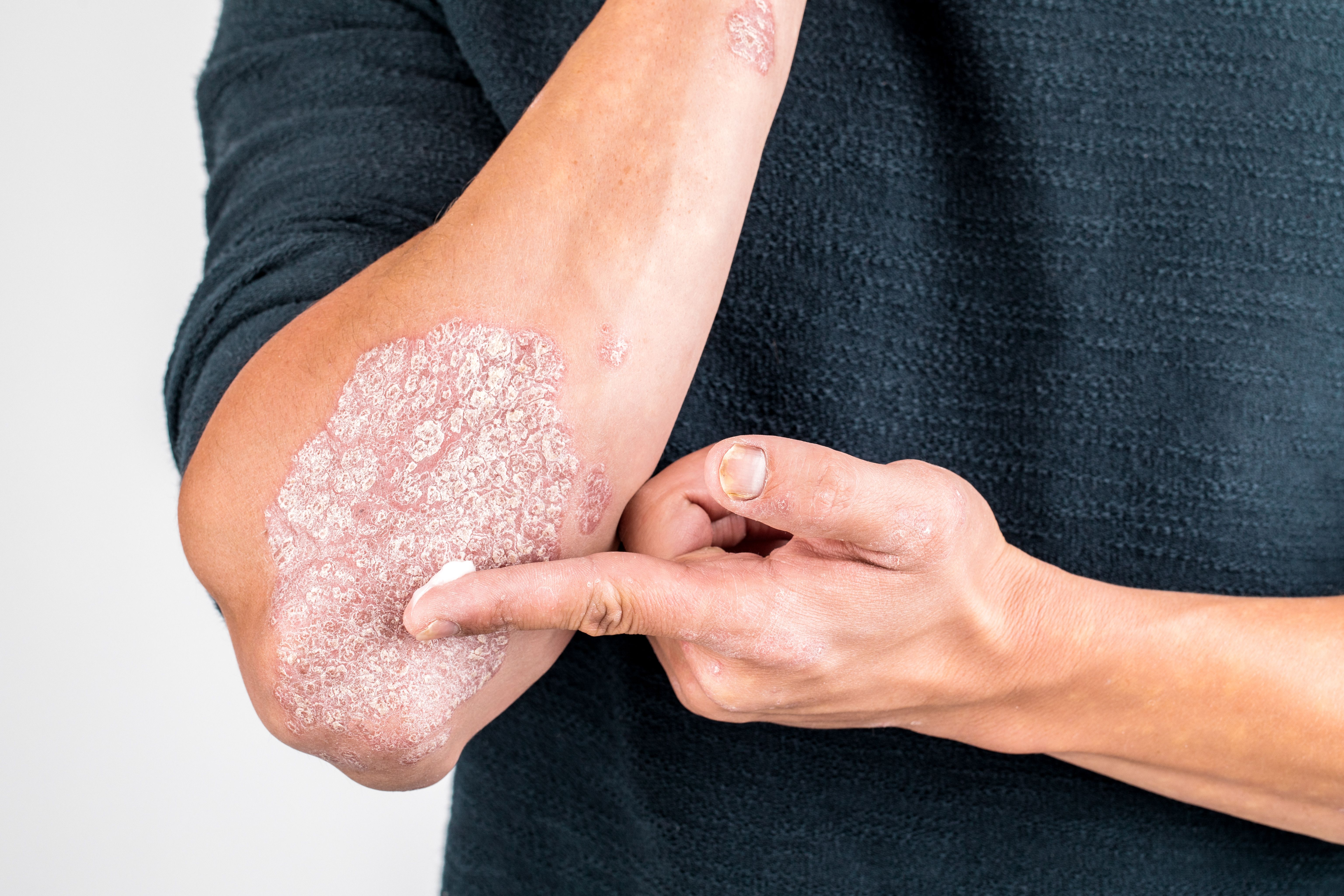- Acne
- Actinic Keratosis
- Aesthetics
- Alopecia
- Atopic Dermatitis
- Buy-and-Bill
- COVID-19
- Case-Based Roundtable
- Chronic Hand Eczema
- Chronic Spontaneous Urticaria
- Drug Watch
- Eczema
- General Dermatology
- Hidradenitis Suppurativa
- Melasma
- NP and PA
- Pediatric Dermatology
- Pigmentary Disorders
- Practice Management
- Precision Medicine and Biologics
- Prurigo Nodularis
- Psoriasis
- Psoriatic Arthritis
- Rare Disease
- Rosacea
- Skin Cancer
- Vitiligo
- Wound Care
Article
Biologic risk tolerance differs for pregnant patients
Author(s):
Of several biologic agents that women of reproductive age can choose from to treat and manage psoriasis, not all have the same safety profile during pregnancy and lactation periods.
There are a number of biologic agents that women of reproductive age can choose from to treat and manage psoriasis, however, not all agents have the same safety profile during pregnancy and lactation periods. As such, it behooves physicians to be knowledgeable and advise their pregnant or lactating psoriasis patients regarding appropriate treatment options that match their psoriasis disease severity.

Alexa B. Kimball, M.D., M.P.H.“Dermatologists need to be ready to discuss the risks and benefits of treatment with the biologic agents during the pregnancy and lactation periods in these patients and be able to counsel them appropriately,” said Alexa B. Kimball, M.D., MPH, a dermatologist with Beth Israel Deaconess Medical Center in Boston.
The average age of female patients at the time of onset of psoriasis disease is 28 years, which means that it is likely that many of these female patients with psoriasis are of childbearing potential. Today, an increasing number of women of reproductive age are being treated with an ever-evolving armamentarium of biologic agents for their psoriasis, leading to an increase in the number of pregnancies exposed to these drugs. These primarily include the tumor necrosis factor-alpha (TNF-alpha) inhibitors such as adalimumab and etanercept, ustekinumab, as well as several new and evolving biologic agents. However, not every biologic is equally safe to use during the pregnancy and lactation periods.
“I think it is very important to remember that the things you worry about in the first trimester are not the same things you worry about in the third trimester of a pregnancy. The physician’s choice of biologic will in part depend on how far along the patient is with her pregnancy,” Dr. Kimball said.
Maternal Hormones
Pregnancy is marked by complex maternal hormonal and immune system changes Dr. Kimball said and here, the maternal immune system shifts from a T helper (Th) cell 1 to a Th2 response. With this shift, certain Th2-mediated diseases can worsen. Other T cell subsets that are related to autoimmune diseases include Th17 and T regulatory (Treg) cells. Psoriasis is thought to be a primarily Th17-mediated disease with some Th1 involvement Dr. Kimball said, and since both of these cells are downregulated during pregnancy, a patient’s disease status can improve during pregnancy.
Despite the substantial hormone load during the course of a pregnancy that could help lead to a disease flare at any time, approximately one third of patients with psoriasis will actually show improvement in their symptoms during pregnancy and another third will stay about the same. That leaves a large patient group that may not require further therapy during the third trimester at all.
“Exposure to risk during pregnancy is an incredibly personal choice, and many women have different risk tolerance. No one size fits all and psoriasis patients will often make tradeoffs between treatment with a biologic agent and the potential adverse events,” Dr. Kimball said.
Because of the minimal placental transport of maternal antibodies during the first two trimesters of pregnancy, Dr. Kimball said that anti-TNF agents are generally considered to be a safe option during the first half of the pregnancy. Etanercept and certolizumab appear to have low placental transfer in the third trimester while infliximab and adalimumab are actively transferred which can lead to significant levels in the newborn.
“This is what makes the conversation with psoriasis patients so dynamic. Often times, either patients are planning to get pregnant or just want to get pregnant, and they are concerned whether it is a problem if they are exposed in the first trimester to a biologic agent. Fortunately to date, we haven’t seen any serious issues with the biologics in the first trimester,” Dr. Kimball said.
Although many skin disease patients demonstrate an alleviation of symptoms and generally tend to fare better during pregnancy, in Dr. Kimball’s experience, arthritis patients may be more likely to flare during pregnancy and are more difficult to manage. The postpartum period is also a time when flares can occur more frequently as well.
“Physicians should not be afraid to have these conversations with women. I have more conversations with women who are thinking about getting pregnant than actually get pregnant. I expect that it is a really important part of the process for them, so I believe it is an important conversation to open,” Dr. Kimball said.
Newsletter
Like what you’re reading? Subscribe to Dermatology Times for weekly updates on therapies, innovations, and real-world practice tips.









